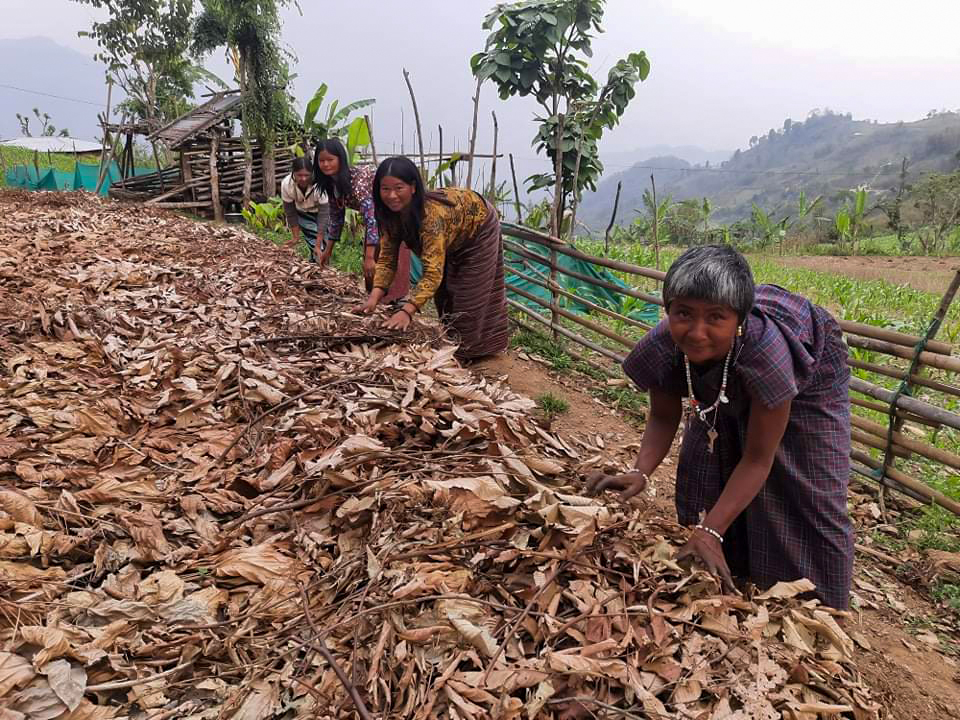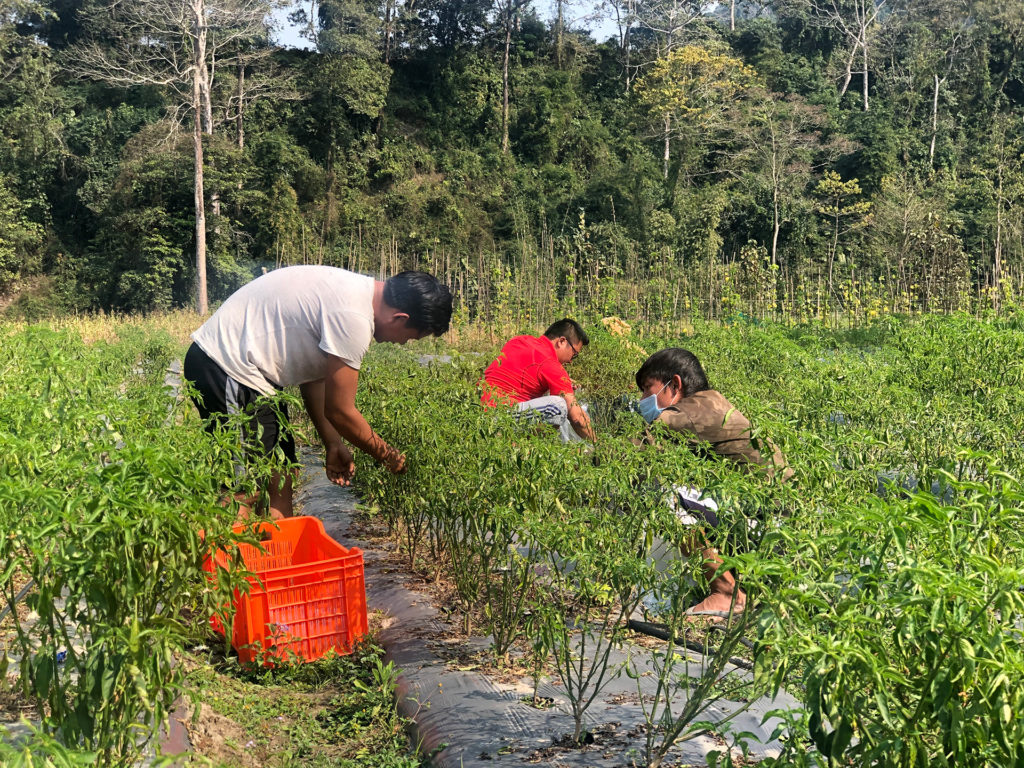November 9, 2022
By Kinga Wangdi

Bhutan is an agriculture-based society, with more than half of its population dependent on farming for their livelihood. This sector is increasingly vulnerable to the adverse effects of climate change and other natural calamities, including human-wildlife interaction.
In light of this, the Bhutan Foundation is actively supporting civil society and community-based organizations aimed at reaching food self-sufficiency in Bhutan by means of increased local production. The Foundation expanded its support at the onset of the Covid-19 pandemic and has been working closely with partners and communities since.
In 2022, the Foundation supported the Tarayana Foundation in implementing a project on sustainable, climate-adapted agriculture for Bhutan’s food systems and nutrition security. The project is being implemented in five districts of Dagana, Mongar, Zhemgang, Pema Gatshel, and Tsirang, and consists of ten self-help groups (SHG). These groups enable stakeholders to collaborate on income-generating activities, such as the collective marketing of products. Through improved access to credit and agriculture-related services, as well as innovation along the value chain, this program aims to reduce poverty and improve food and nutrition security for approximately 29,250 households in these five districts.

The Foundation also assisted the Panbang Youth Cooperative (PYC), a community-based organization pursuing integrated agro-livestock farming in Zhemgang. The group was founded by five childhood friends who returned to their hometown after graduating college to become farmers. They are focusing on mass cultivation of vegetables, fruits, and cereals, as well as livestock and poultry. Encroachment of wildlife is a major challenge faced by the group, with nearly 20% of their produce being lost to wild pigs and porcupines each season. To address this, the Bhutan Foundation supported PYC’s construction of chain-link fencing for their 12 acres of farmland. The Foundation also sponsored the planting of 14,000 pineapple seedlings, which produced 100 kilograms of pineapples this year.
From Stronger Alliances: Bhutan Foundation Annual Report 2022